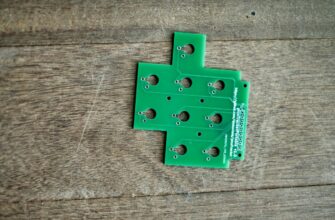USDT vs USDC Fees: Which Stablecoin Saves You More Money?
When transferring value in crypto, every dollar counts. With USDT (Tether) and USDC (USD Coin) dominating the $130B+ stablecoin market, understanding their fee structures is crucial for cost-effective transactions. This guide breaks down withdrawal, trading, and network fees to help you minimize expenses.
Understanding Stablecoin Fee Structures
Both USDT and USDC maintain 1:1 USD pegs, but their fee models differ significantly due to:
- Blockchain networks (ERC-20, TRC-20, Solana, etc.)
- Exchange policies (platform-specific charges)
- Network congestion (variable gas/transaction fees)
- Withdrawal minimums and processing times
USDT Fee Breakdown
Tether’s fees vary dramatically across networks:
- ERC-20 (Ethereum): $1-15 withdrawal fees + gas fees ($2-50 during peak times)
- TRC-20 (Tron): $1 fixed fee + near-zero gas fees (<$0.01)
- Solana: $0.01 average transaction fee
- Exchange withdrawals: Binance charges 1 USDT (TRC-20) vs 25 USDT (ERC-20)
Note: USDT’s Omni Layer network is being phased out due to high $20+ fees.
USDC Fee Analysis
Issued by Circle, USDC offers competitive pricing:
- ERC-20: $1-10 withdrawal fees + Ethereum gas fees
- Solana: $0.00025 average transaction fee
- Stellar: $0.01 flat fee per transaction
- Exchange withdrawals: Coinbase offers free USDC conversions to USD
Key advantage: USDC often has lower minimum withdrawals ($10-20) compared to USDT ($50-100).
Head-to-Head Fee Comparison
Average costs for $100 transfer:
- TRC-20 USDT: $1.01 (Best for speed & cost)
- Solana USDC: $0.26
- ERC-20 USDT: $8-65
- ERC-20 USDC: $5-60
TRC-20 USDT generally wins for small transfers, while Solana USDC excels for micro-transactions.
4 Ways to Reduce Stablecoin Fees
- Use TRC-20 for USDT withdrawals under $1,000
- Choose Solana network for USDC transfers
- Time transactions during low network congestion (UTC nights/weekends)
- Consolidate small transfers into larger batches
FAQs: USDT vs USDC Fees
Q: Which has lower fees overall – USDT or USDC?
A: It depends on the network. TRC-20 USDT is cheapest for small amounts, while Solana USDC beats it for sub-$10 transactions.
Q: Why are ERC-20 fees so high?
A: Ethereum’s gas mechanism charges more during network congestion. Fees can spike 500%+ during NFT mints or token launches.
Q: Can I avoid withdrawal fees completely?
A: Yes! Some exchanges like Kraken offer free stablecoin withdrawals via specific networks (e.g., Stellar for USDC).
Q: Which stablecoin is better for daily spending?
A: USDC on Solana – its $0.00025 fees make coffee purchases feasible without $3 transaction costs.
Q: Do trading fees differ between USDT and USDC pairs?
A: Typically no. Exchanges charge identical 0.1-0.2% fees for both stablecoin trading pairs.
Smart Fee Strategy Conclusion
While USDT dominates liquidity, USDC offers superior fee efficiency on modern networks. For under-$500 transfers, prioritize TRC-20 USDT. For micro-payments or Solana ecosystem use, USDC is unbeatable. Always verify network compatibility with your wallet before transferring – saving dollars starts with smart chain selection.








